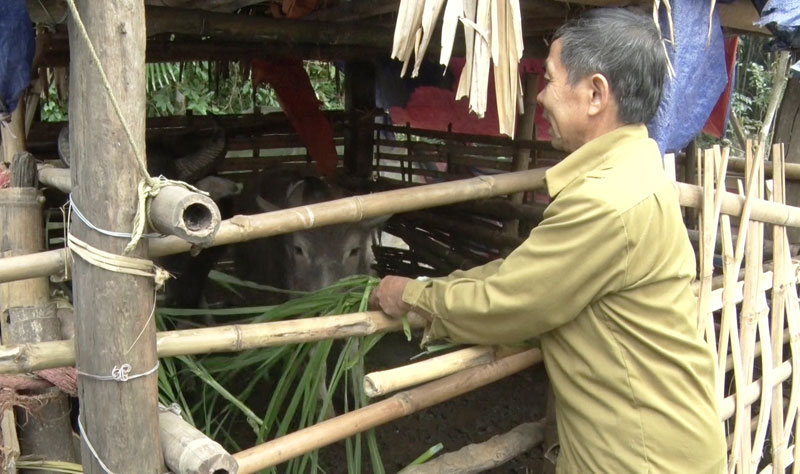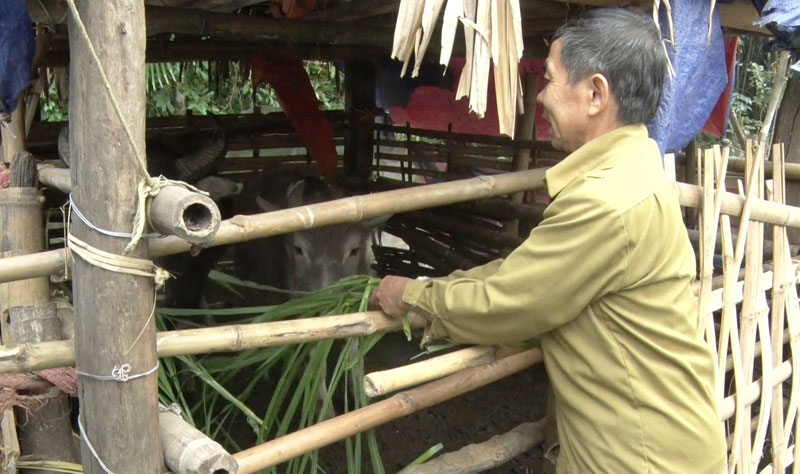
(HBO) – At the end of 2018, the rate of the poor households in the north-western mountainous province of Hoa Binh is estimated at 14.74 percent, down 3.1 percent year-on-year. The result has reflected the efficiency of preferential loans for the poor.
Xa
Van Hoan, a man of the Tay ethnic minority group in Phu Son hamlet, Cao Son
commune, Da Bac district said before accessing the loans, his family had been
in the list of especially poor households in the commune. In 2012, his family
was eligible to get a loan worth 20 million VND from a programme that supports
poor households and another loan worth 8 million VND from the Vietnam Bank for
Social Policies (VBSP)’ Da Bac district branch under a programme supporting ethnic
minority households in special difficulties. With the money borrowed, his
family bought two buffalos that gave birth to two calves after nearly one year.
In 2015 Hoan’s family paid back the due debt and borrowed another 30 million
VND to invest in animal husbandry. Currently, his family has five buffaloes.

With preferential loans from the VBSP,
poor households in Cao Son commune (Da Bac district) have invested in buffalo
breeding, gradually getting rid of poverty and stabilising their lives.
Hoan’s family is one of the more than 90,000 others in the province which have surpassed
the poverty line after 15 years since the preferential loans were offered in
the province.
As of late November, 9,582 households had accessed loans totaling over 303
billion VND, with more than 256 billion VND already paid back. Total loan
outstanding balance exceeded 922 billion VND, with 31,851 debtors.
Local Party committees and authorities need to pay more attention to vocational
training and agriculture and forestry expansion in order to optimise the preferential
loans, helping accelerate poverty reduction in the province.
The emulation movement "Hoa Binh joining hands to build new-style rural areas” has been widely spreading, becoming a driving force that motivates the localities to renew rural landscapes and improve the material and spiritual lives of the residents. In this movement, the people play a central role-both as the main implementers and direct beneficiaries of its outcomes.
In response to the global digital revolution, Hoa Binh Newspaper is transforming itself into a modern and multi-platform media hub, blending cutting-edge technology with a restructured newsroom and a new generation of tech-savvy journalists.
Hoa Binh province’s Association of the Elderly recently held a conference to review the project on expanding the inter-generation self-help club model until 2025.
In a move to implement Resolution No. 57-NQ/TW, issued on December 22, 2024 by the Politburo, which targets breakthroughs in science-technology development, innovation, and digital transformation, the Hoa Binh provincial Department of Health has issued a plan to roll out the "Digital Literacy for All” campaign within the local health sector.
An Nghia Commune (Lạc Sơn District) is one of the communes that achieved the tha standard of the national new rural area in 2018. Entering a new development phase, the commune is now trying to meet the criteria for the advanced new rural development. With the strong political will and the public consensus, the commune is gradually overcoming the challenges to reach this goal, aiming for the sustainable development.



